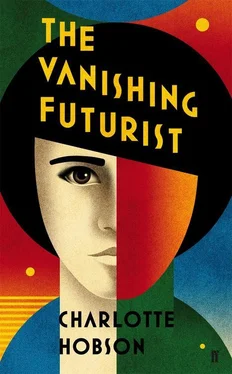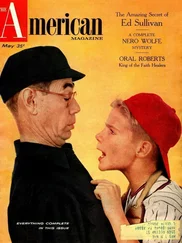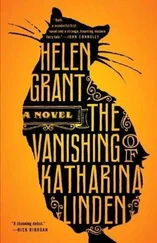‘And you? What about you?’
‘I will accompany you as far as you wish me to, of course. Then I suppose I’ll continue my work at Narkompros.’
I stared at him. ‘But you’ve impersonated a Cheka official – you’re in danger too.’
‘I doubt Sister Serafima would identify me.’
His expression was stony, a look that I would not have recognised on him a couple of years ago. Weakly, I changed the subject.
‘How will we get tickets to Petrograd? People wait for weeks to get them…’
‘Volodya might be able to help us. But we shouldn’t spend a minute more than we need at Gagarinsky Lane. I’m willing to bet Pelyagin’s men will have been round to tell the neighbours to report our return.’
We waited in the woods for the next train, a goods vehicle that we managed to scramble aboard. We sat on the running plate until it arrived just outside Paveletsky station in Moscow at six in the evening. I was very cold, very tired and my belly seemed to be growing heavier and more uncomfortable each moment. Until then I had given little thought to the birth, but now it suddenly filled my mind. I had little more than a month left. I wanted to beg Pasha to promise he would stay with me at least until the baby was born, but he looked so grim I didn’t have the courage to raise the subject.
‘Perhaps we can rest somewhere?’
‘If you want.’ Outside the station we found an old woman with a little card saying simply ‘Bed’. She took us to her room, in the basement of an old apartment building, and showed us the bed she meant – her own. We lay down and covered ourselves with our coats and she sat on a chair, keeping a close eye on us. At some point I woke in the night and found her trying to undo my shoelaces. I pushed her away but she clung on for a while, glaring at me reproachfully. Finally she let go and sat back down again.
During the hours of night Slavkin’s hands, with their long, pallid, Orthodox fingers, appeared in my dream. His gentle manner with the old ladies, his smile. ‘Guardian angels’, he remarked once to me, ‘are a scientific fact.’
‘Oh, don’t be so ridiculous,’ I said, laughing.
‘Yes, a fact! They are the electric current that guides us, unknowing, through our lives… towards one decision, away from another. On what do we base our decisions? Most of them spring from an instinctive response, very few are based on logic. And yet we make good decisions much of the time. Like animals, we have a natural instinct for the electromagnetic currents of the Universe.’
We left before dawn and walked up to Gagarinsky Lane to collect our passports and a few belongings. I shoved the surviving IRT papers into a couple of boxes and, in return for the last of our food supplies, the metalworker’s wife agreed to deliver them to the British Embassy. Volodya, miraculously, managed to obtain tickets for us that evening, to travel under false papers as a Communist Party member and his wife, going to take up a post in Petrograd. Once in Petrograd, we took turns all day to queue for tickets to Narva. The train left the following morning on a twenty-four-hour journey, much of which was spent stopping, starting and crawling into sidings for hours at a time. Around midnight, our compartment fell silent and I finally plucked up the courage to speak to Pasha.
I put my lips up against his ear and whispered as quietly as I could.
‘I wanted to ask… I mean, I don’t want to press you… but I wondered if you would mind very much if I asked you to marry me?’
A pause.
‘I didn’t know whether I should ask you, what with the – the matter of the baby, and of course marriage itself is utterly bourgeois, against both our principles. I quite understand if you refuse…’
He still said nothing but I could feel him pulling away from me.
‘No, I’ve started this all wrong. Wait, please, it’s nothing to do with Revolutionary principles. You’re right, of course I loved Nikita – we both love Nikita, we will never stop loving him. But I made a mistake. I misunderstood what love felt like, do you see? For whatever reason – I don’t know why – I thought of love as something difficult, something I should suffer for.’ I swallowed hard, floundering. ‘I – I didn’t realise I loved you, because it was just so easy, and warm, and good…’
He tried to speak, but I was determined not to be interrupted. ‘The fact is, now I know that I love you, I have to say so. I can’t let you disappear, and I’m terrified that when we get to the border they might not let you through, or they might take me off somewhere separate, or… or who knows what they might do to you, don’t you understand?’ I was gabbling by this time and my voice was rising. Suddenly I felt his finger on my lips.
‘Sh. No – no.’
‘No?’ My voice rose to a squeak.
‘No, I don’t mind marrying you, my darling love. You absolute idiot. And also no, I don’t care about the matter of the baby, and it’s not against my principles. And no, I am not going to disappear. I didn’t think you wanted me to come with you…’
‘Oh… Good.’
We started laughing weakly in the dark, and trying to stifle our laughter, which had the result of mild hysteria.
‘Oh, shut your gobs!’ snapped the market trader squashed beside us. ‘You’re shaking the bed up like a bloody blancmange!’
That didn’t help. It was some moments before I could compose myself. Then Pasha whispered in my ear, ‘Let’s do it now, then, shall we?’
‘What?’
‘Get married.’
‘Oh! How?’
‘We each say our vows to the other. I, Pavel Aleksandrovich Kobelev, take you, Getrude Freely—’
‘Gertrude Adelaide.’
‘Really? I didn’t know. How delightful. Gertrude Adelaide Freely, as my beloved wife. I vow to love you, care for you, kiss you, and always tell you the truth, till death us do part.’
‘And not to disappear.’
‘And not to disappear. Now you.’
‘I, Gertrude Adelaide Freely, take you, Pavel Aleksandrovich Kobelev, as my beloved husband. I vow to love you, care for you, and always be truthful, till death us do part.’
‘And to kiss me. You can start that now.’
We kissed, in the darkness, all the way to the border.
Finally we were told to disembark. At the checkpoint they kept us waiting for hours, searching through the mound of luggage that our fellow travellers were carrying. My stomach began to ache so painfully that I was convinced that labour had begun. I begged them to let me get to the hospital in Reval. The young customs officer looked alarmed, and went to consult his superior.
‘Go on,’ snapped the senior officer, jerking his head. ‘Get out of here. We’re not a crèche!’
Holding hands, Pasha and I walked across the bridge over the muddy, turgid Narva river and into Estonia.
* * *
We were married for the second time in Reval (or Tallinn, as it had just been renamed). The city was battered by civil war itself, but to us it seemed the epitome of peace. Its shops were magically stuffed with goods, and in the streets people strolled about and appeared not to be thinking about food at all. With our last funds we bought ourselves clothes and visited the barber. I remember the delicious luxury of lying back in the barber’s chair, only the snippety-snip of the scissors breaking the silence, the previous months falling away from me as each long curl landed on the floor. We bathed ourselves carefully in the digs we had taken near the station and dressed in our new clothes, like children going to First Communion. Outside the Guild Hall we bought a bunch of snowdrops from an old woman. Half an hour later, we emerged with a marriage certificate.
The Kobelevs had friends, perhaps even distant cousins, the Rauds, who had an estate south of Tallinn. I hadn’t met them, but before the war they had been frequent visitors in Moscow and Pasha had visited their estate as a child. We sent a telegram on our arrival, and the next we knew, several days after our wedding, was Mark Raud himself arriving at our door in a pony-trap, embracing us both, and insisting we eat the picnic he had brought with him from the estate. A big, stern figure, he stood over us, hushing us while we ate.
Читать дальше





![Майкл Муркок - Спящая волшебница / The Sleeping Sorceress [= Участь Белого Волка, Рыцарь Хаоса, The Vanishing Tower]](/books/327544/majkl-murkok-spyachaya-volshebnica-the-sleeping-sorc-thumb.webp)






